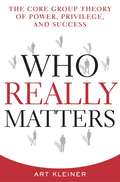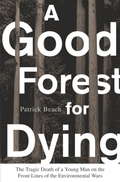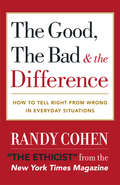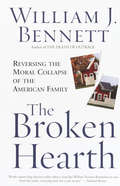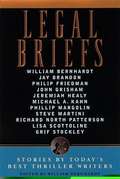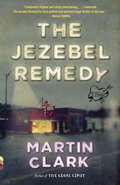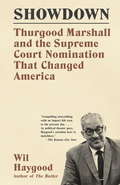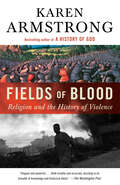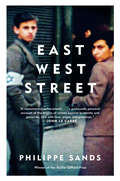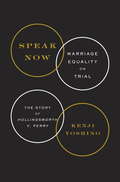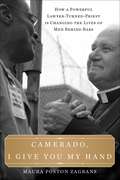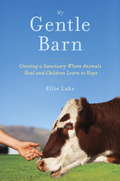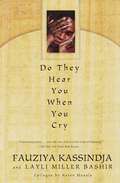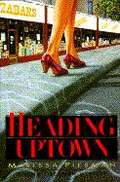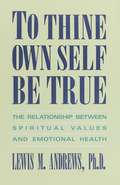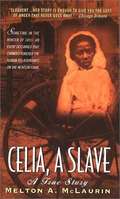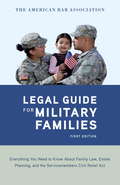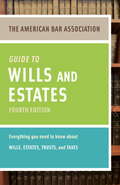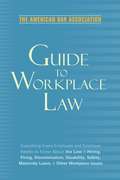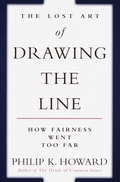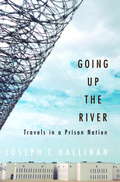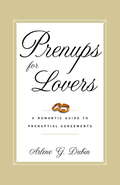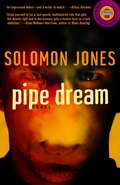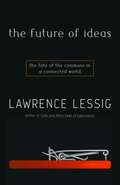- Table View
- List View
Who Really Matters: The Core Group Theory of Power, Privilege, and Success
by Art KleinerIn a breakthrough Organization Man for the twenty-first century, bestselling author Art Kleiner reveals that every organization is driven by a desire to satisfy a Core Group of influential individuals and explains why understanding this group’s expectations is the key to success.When corporate leaders announce, with seeming sincerity, “We make our decisions on behalf of our shareholders,” their words are taken at face value. But as recent news stories prove, this imperative is routinely violated. In Who Really Matters, Art Kleiner argues that the dissonance between a declared mission and actual operation can be seen at organizations large and small. All organizations have one motive in common. Every decision—which projects to back, who to promote, or how to spend money—is affected by the perceived wants and needs of a core group of people “who really matter.” The composition of the group can differ from organization to organization. Often, the most senior people in the hierarchy are members—but not always. Sometimes, the people who “matter” can extend far down the corporate ladder, or even reach outside the company to include key customers, labor union leaders, and stockholders. Kleiner gives readers clues about how to identify a core group’s real mission by observing its day-to-day actions, listening to the fundamental message it sends employees, examining its management of new members; understanding the ideas that shape its policies about management, money, and the way the world works; and avoiding the taboos governing the way it operates.Whether you’re a member of the Core Group—or want to be—this deft, engaging blend of argument and observation, anecdotes and advice, is the one guide you’ll need to achieve your career goals and aspirations by navigating the hidden pathways in any organization, large or small.
A Good Forest for Dying: The Tragic Death of a Young Man on the Front Lines of the Environmental Wars
by Patrick BeachEarly on a September morning in 1998, David “Gypsy” Chain and eight fellow Earth First! activists went into the redwood forests of Scotia, California. Their loosely organized plan to protest the destruction caused by the logging industry almost immediately turned farcically tragic. A. E. Ammons, a logger for Pacific Lumber, confronted the group, threatening them in an obscenity-ridden diatribe: if they didn't leave "I'll make sure I got a tree comin' this way!" The group retreated, moving deeper into the wilderness. A short time later, just as they were attempting to confront the logger yet again, Gypsy was dead, crushed to death by a tree Ammons felled. A GOOD FOREST FOR DYING traces the long history of bitter clashes between environmental concerns and economic interests in the American West and shows why these tensions came to a head in northern California in the 1990s. It tells the story of how Pacific Lumber, once an environmentally friendly, family-owned business, became part of a conglomerate whose business practices made it a ripe target for environmental activists. But A GOOD FOREST FOR DYING is also the story of Gypsy Chain, a troubled young man raised in a loving family. A social misfit in his small Texas hometown, he died in a faraway forest before he had a chance to come to terms with himself and his family. His mother never lost faith in her sometimes wayward, idealistic son. After his death, and helped by a team of shrewd, leftist lawyers, she mounted a fight for justice in the name of her son and the cause of saving the redwoods. A balanced, highly readable examination of complex, emotionally charged issues, A GOOD FOREST FOR DYING will appeal to a wide audience. Its insights into the inner workings of the radical environmental movement and its dissection of corporate greed and misdeeds are reminiscent of such provocative exposés as A Civil Action and Erin Brockovich. The story of Gypsy’s strange odyssey and the disturbing circumstances of his death–seen primarily through the eyes of his mother–is as powerful and as moving as Jon Krakauer’s classic Into the Wild.
The Good, the Bad & the Difference
by Randy CohenThe man behind the New York Times Magazine's immensely popular column "The Ethicist"-syndicated in newspapers across the United States and Canada as "Everyday Ethics"-casts an eye on today's manners and mores with a provocative, thematic collection of advice on how to be good in the real world.Every week in his column on ethics, Randy Cohen takes on conundrums presented in letters from perplexed people who want to do the right thing (or hope to get away with doing the wrong thing), and responds with a skillful blend of moral authority and humor. Cohen's wisdom and witticisms have now been collected in The Good, the Bad & the Difference, a collection of his columns as wise and funny as a combination of "Dear Abby," Plato, and Mel Brooks. The columns are supplemented with second thoughts on (and sometimes complete reversals of) his original replies, follow-up notes on how his advice affected the actions of various letter writers, reactions from readers both pro and con, and observations from such "guest ethicists" as David Eggers and the author's mom. Each chapter also features an "Ethics Pop Quiz," and readers will be invited to post their answers on the book's Web site. The best of them will appear in a future paperback edition of the book.The Good, the Bad & the Difference is divided into seven sections: *Civic Life (what we do in public) *Family Life (what we do at home) *Social Life (what we do in other people's homes) *Commercial Life (what we do in situations where money is a factor) *Medical Life (the rights and obligations of patients and caregivers) *Work Life (ethics for the professional sphere) *School Life (moral questions from and about kids)Each section provides a window into how we live today, shedding light on the ways in which a more ethical approach to the decisions we make, and to our daily behavior, can make a big difference in how we feel about ourselves tomorrow.From the Hardcover edition.
The Broken Hearth: Reversing the Moral Collapse of the American Family
by William J. BennettToday the American family is under siege as never before. From the dramatic rise in illegitimacy, divorce, cohabitation, and single parenthood to the call for recognition of gay marriages, the traditional nuclear family is being radically challenged and undermined, along with the moral and legal consensus that once supported it. Many think it doesn't matter whether we preserve the nuclear family. Some even argue that its dissolution is a good thing-a liberation from repressive patriarchal authority. William J. Bennett maintains that, to the contrary, the dissolution of the American family is the fundamental crisis of our time. Now, in a book as provocative and controversial as his bestsellingThe Death of Outrage, Bennett presents a timely and much-needed defense of the traditional family. Combining fearless conviction with acute insight and respect for his adversaries, Bennett offers thorough, balanced, and enlightening discussions of single parenthood, cohabitation, gay marriage, and other trends that are undercutting the ideal of the nuclear family as the essential foundation of society. Arguing that our recent economic prosperity has masked the devastating effects of this unprecedented social experimentation, Bennett traces the effects of these trends and weighs their impact on the present and future health of our society. Americans like to think they are free to reinvent every aspect of family life without social or personal consequences. Yet, far from being strictly a matter of private choice, the integrity of families is, Bennett shows, a strong and legitimate interest of society at large. And, he argues, the monogamous nuclear family is not a repressive patriarchal institution, but quite the opposite: a precious and hard-won historical achievement, one that safeguards the interests of men, women, and children as no other arrangement yet devised. Rising above the jeremiads characteristic of so much contemporary public debate,The Broken Hearthprovides a powerful affirmation of family life and the matchless benefits it bestows on individuals and society as a whole.
Legal Briefs: Stories By Today's Best Legal Thriller Writers
by William BernhardtFrom an all-star team of legal thriller writers, eleven stories of top-flight suspense. William Bernhardt, author of seven bestselling novels featuring attorney Ben Kincaid, asked ten of his fellow lawyer/authors to contribute their most fiendishly clever short pieces for this anthology, and told them their imaginations were their only guides. The result is Legal Briefs, a smorgasbord of stories boasting a wonderful variety of themes and styles. From John Grisham's exploration of a doctor's guilt in "The Birthday" to Richard North Patterson's story of a lawyer's loyalty to his mentor in "The Client," to Grif Stockley's tale of a divorce lawyer who learns the hard way that things are not always what they seem, these pieces showcase the extraordinary depth and breadth of talent among the new breed of legal thriller writers. Some of these stories feature twisting and inventive plots; some illuminate the moral dilemmas and psychological complexities faced by the modern-day lawyer; some are good, old-fashioned yarns. But for all their diversity of approaches and characters, these writers understand that the courtrooms and law firms from which they came offer the raw material for the most dramatic, suspenseful stories you can read. Legal Briefs will be a delight for fans of all these bestselling authors, and a splendid introduction to their talents for all readers new to the genre.
The Jezebel Remedy
by Martin ClarkMartin Clark--who has set, according to the Winston-Salem Journal, "the new standard by which other works of legal fiction should be judged"--now delivers his finest novel yet. Lisa and Joe Stone, married for twenty years and partners in their small law firm in Henry County, Virginia, handle less-than-glamorous cases, whether domestic disputes, personal injury settlements, or never-ending complaints from their cantankerous client Lettie VanSandt ("eccentric" by some accounts, "certifiable" by others). When Lettie dies in a freakish fire, the Stones think it's certainly possible that she was cooking meth in her trailer. But details soon emerge that lead them to question how "accidental" her demise actually was, and settling her peculiar estate becomes endlessly complicated. Before long, the Stones find themselves entangled in a corporate conspiracy that will require all their legal skills--not to mention some difficult ethical choices--for them to survive. Meanwhile, Lisa is desperately trying to shield Joe from a secret, dreadful error that she would give anything to erase, even as his career--and her own--hangs in the balance. In The Jezebel Remedy, Clark gives us a stunning portrait of a marriage, an intricate tour of the legal system, and a relentlessly entertaining story that is full of inventions, shocks, and understanding. This eBook edition includes a Reading Group Guide.
Showdown: Thurgood Marshall and the Supreme Court Nomination That Changed America
by Wil HaygoodThurgood Marshall brought down the separate-but-equal doctrine, integrated schools, and not only fought for human rights and human dignity but also made them impossible to deny in the courts and in the streets. In this stunning new biography, award-winning author Wil Haygood surpasses the emotional impact of his inspiring best seller The Butler to detail the life and career of one of the most transformative legal minds of the past one hundred years. Using the framework of the dramatic, contentious five-day Senate hearing to confirm Marshall as the first African-American Supreme Court justice, Haygood creates a provocative and moving look at Marshall's life as well as the politicians, lawyers, activists, and others who shaped--or desperately tried to stop--the civil rights movement of the twentieth century: President Lyndon Johnson; Congressman Adam Clayton Powell Jr., whose scandals almost cost Marshall the Supreme Court judgeship; Harry and Harriette Moore, the Florida NAACP workers killed by the KKK; Justice J. Waties Waring, a racist lawyer from South Carolina, who, after being appointed to the federal court, became such a champion of civil rights that he was forced to flee the South; John, Robert, and Ted Kennedy; Senator Strom Thurmond, the renowned racist from South Carolina, who had a secret black mistress and child; North Carolina senator Sam Ervin, who tried to use his Constitutional expertise to block Marshall's appointment; Senator James Eastland of Mississippi, the head of the Senate Judiciary Committee, who stated that segregation was "the law of nature, the law of God"; Arkansas senator John McClellan, who, as a boy, after Teddy Roosevelt invited Booker T. Washington to dinner at the White House, wrote a prize-winning school essay proclaiming that Roosevelt had destroyed the integrity of the presidency; and so many others. This galvanizing book makes clear that it is impossible to overestimate Thurgood Marshall's lasting influence on the racial politics of our nation.From the Hardcover edition.
Fields of Blood: Religion and the History of Violence
by Karen ArmstrongFrom the renowned and best-selling author of A History of God, a sweeping exploration of religion and the history of human violence. For the first time, religious self-identification is on the decline in American. Some analysts have cited as cause a post-9/11perception: that faith in general is a source of aggression, intolerance, and divisiveness--something bad for society. But how accurate is that view? With deep learning and sympathetic understanding, Karen Armstrong sets out to discover the truth about religion and violence in each of the world's great traditions, taking us on an astonishing journey from prehistoric times to the present. While many historians have looked at violence in connection with particular religious manifestations (jihad in Islam or Christianity's Crusades), Armstrong looks at each faith--not only Christianity and Islam, but also Buddhism, Hinduism, Confucianism, Daoism, and Judaism--in its totality over time. As she describes, each arose in an agrarian society with plenty powerful landowners brutalizing peasants while also warring among themselves over land, then the only real source of wealth. In this world, religion was not the discrete and personal matter it would become for us but rather something that permeated all aspects of society. And so it was that agrarian aggression, and the warrior ethos it begot, became bound up with observances of the sacred. In each tradition, however, a counterbalance to the warrior code also developed. Around sages, prophets, and mystics there grew up communities protesting the injustice and bloodshed endemic to agrarian society, the violence to which religion had become heir. And so by the time the great confessional faiths came of age, all understood themselves as ultimately devoted to peace, equality, and reconciliation, whatever the acts of violence perpetrated in their name.Industrialization and modernity have ushered in an epoch of spectacular and unexampled violence, although, as Armstrong explains, relatively little of it can be ascribed directly to religion. Nevertheless, she shows us how and in what measure religions, in their relative maturity, came to absorb modern belligerence--and what hope there might be for peace among believers of different creeds in our time.At a moment of rising geopolitical chaos, the imperative of mutual understanding between nations and faith communities has never been more urgent, the dangers of action based on misunderstanding never greater. Informed by Armstrong's sweeping erudition and personal commitment to the promotion of compassion, Fields of Blood makes vividly clear that religion is not the problem.From the Hardcover edition.
East West Street: On the Origins of "Genocide" and "Crimes Against Humanity"
by Philippe SandsA profound and profoundly important book—a moving personal detective story, an uncovering of secret pasts, and a book that explores the creation and development of world-changing legal concepts that came about as a result of the unprecedented atrocities of Hitler’s Third Reich. East West Street looks at the personal and intellectual evolution of the two men who simultaneously originated the ideas of “genocide” and “crimes against humanity,” both of whom, not knowing the other, studied at the same university with the same professors, in a city little known today that was a major cultural center of Europe, “the little Paris of Ukraine,” a city variously called Lemberg, Lwów, Lvov, or Lviv.The book opens with the author being invited to give a lecture on genocide and crimes against humanity at Lviv University. Sands accepted the invitation with the intent of learning about the extraordinary city with its rich cultural and intellectual life, home to his maternal grandfather, a Galician Jew who had been born there a century before and who’d moved to Vienna at the outbreak of the First World War, married, had a child (the author’s mother), and who then had moved to Paris after the German annexation of Austria in 1938. It was a life that had been shrouded in secrecy, with many questions not to be asked and fewer answers offered if they were.As the author uncovered, clue by clue, the deliberately obscured story of his grandfather’s mysterious life, and of his mother’s journey as a child surviving Nazi occupation, Sands searched further into the history of the city of Lemberg and realized that his own field of humanitarian law had been forged by two men—Rafael Lemkin and Hersch Lauterpacht—each of whom had studied law at Lviv University in the city of his grandfather’s birth, each considered to be the father of the modern human rights movement, and each, at parallel times, forging diametrically opposite, revolutionary concepts of humanitarian law that had changed the world.In this extraordinary and resonant book, Sands looks at who these two very private men were, and at how and why, coming from similar Jewish backgrounds and the same city, studying at the same university, each developed the theory he did, showing how each man dedicated this period of his life to having his legal concept—“genocide” and “crimes against humanity”—as a centerpiece for the prosecution of Nazi war criminals. And the author writes of a third man, Hans Frank, Hitler’s personal lawyer, a Nazi from the earliest days who had destroyed so many lives, friend of Richard Strauss, collector of paintings by Leonardo da Vinci. Frank oversaw the ghetto in Lemberg in Poland in August 1942, in which the entire large Jewish population of the area had been confined on penalty of death. Frank, who was instrumental in the construction of concentration camps nearby and, weeks after becoming governor general of Nazi-occupied Poland, ordered the transfer of 133,000 men, women, and children to the death camps. Sands brilliantly writes of how all three men came together, in October 1945 in Nuremberg—Rafael Lemkin; Hersch Lauterpacht; and in the dock at the Palace of Justice, with the twenty other defendants of the Nazi high command, prisoner number 7, Hans Frank, who had overseen the extermination of more than a million Jews of Galicia and Lemberg, among them, the families of the author’s grandfather as well as those of Lemkin and Lauterpacht. A book that changes the way we look at the world, at our understanding of history and how civilization has tried to cope with mass murder. Powerful; moving; tender; a revelation.
Speak Now: Marriage Equality on Trial
by Kenji YoshinoA renowned legal scholar tells the definitive story of Hollingsworth v. Perry, the trial that will stand as the most potent argument for marriage equalitySpeak Now tells the story of a watershed trial that unfolded over twelve tense days in California in 2010. A trial that legalized same-sex marriage in our most populous state. A trial that interrogated the nature of marriage, the political status of gays and lesbians, the ideal circumstances for raising children, and the ability of direct democracy to protect fundamental rights. A trial that stands as the most potent argument for marriage equality this nation has ever seen. In telling the story of Hollingsworth v. Perry, the groundbreaking federal lawsuit against Proposition 8, Kenji Yoshino has also written a paean to the vanishing civil trial--an oasis of rationality in what is often a decidedly uncivil debate. Above all, this book is a work of deep humanity, in which Yoshino brings abstract legal arguments to life by sharing his own story of finding love, marrying, and having children as a gay man. Intellectually rigorous and profoundly compassionate, Speak Now will stand as the definitive account of a landmark civil-rights trial.From the Hardcover edition.assionate, and beautifully written, Speak Now is both a nuanced and authoritative account of a landmark trial, and a testament to how the clash of proofs in our judicial process can force debates to the ultimate level of clarity.From the Hardcover edition.
Camerado, I Give You My Hand: How a Powerful Lawyer-Turned-Priest Is Changing the Lives of Men Behind Bars
by Maura Poston Zagrans David T. LinkFor many years Dr. David T. Link helped young men and women prepare to become lawyers. After his wife died, and at a time in his life when most people retire, Dr. Link felt called to serve the Church and to aid the men that his profession normally put behind bars, ministering healing and forgiveness to murderers, thieves, and what many would call the least of society. This is a book about the value of human life, and about the transformative power of friendship and compassion. Meeting Father Dave gives us hope that one person can make a difference and, through successive reinterpretations of his own life's purpose, he makes the case for adding our own unique gifts to help the least of these, our brothers and sisters from all walks of life."Song of the Open Road" by Walt WhitmanCamerado, I give you my hand! I give you my love more precious than money, I give you myself before preaching or law; Will you give me yourself? will you come travel with me? Shall we stick by each other as long as we live?
My Gentle Barn
by Ellie Laks"My Gentle Barn is a wonderful book. You'll love Ellie Laks and the animals she rescued--and who rescued her back." -Sy Montgomery, The Good Good PigFounder Ellie Laks started The Gentle Barn after adopting a sick goat from a run-down petting zoo in 1999. Some two hundred animals later (including chickens, horses, pigs, cows, rabbits, emus, and more), The Gentle Barn has become an extraordinary nonprofit that brings together a volunteer staff of community members and at-risk teens to rehabilitate abandoned and/or abused animals. As Ellie teaches the volunteers to care for the animals, they learn a new language of healing that works wonders on the humans as well. The Gentle Barn weaves together the story of how the Barn came to be what it is today with Ellie's own journey. Filled with heartwarming animal stories and inspiring recoveries, The Gentle Barn is a feel-good account that will delight animal lovers and memoir readers alike.
Do They Hear You When You Cry
by Fauziya Kassindja Layli Miller BashirFor Fauziya Kassindja, an idyllic childhood in Togo, West Africa, sheltered from the tribal practices of polygamy and genital mutilation, ended with her beloved father's sudden death Forced into an arranged marriage at age seventeen, Fauziya was told to prepare for kakia, the ritual also known as female genital mutilation It is a ritual no woman can refuse But Fauziya dared to try This is her story--told in her own words--of fleeing Africa just hours before the ritual kakia was to take place, of seeking asylum in America only to be locked up in U. S prisons, and of meeting Layli Miller Bashir, a law student who became Fauziya's friend and advocate during her horrifying sixteen months behind bars Layli enlisted help from Karen Musalo, an expert in refugee law and acting director of the American University International Human Rights Clinic In addition to devoting her own considerable efforts to the case, Musalo assembled a team to fight with her on Fauziya's behalf Ultimately, in a landmark decision in immigration history, Fauziya Kassindja was granted asylum on June 13, 1996 Do They Hear You When You Cry is her unforgettable chronicle of triumph.
Heading Uptown
by Marissa PiesmanA Jewish lawyer by the name Nina Fischman finds herself investigating the murder of the main heir to a very large fortune.
To Thine Own Self Be True: The Relationship Between Spiritual Values and Emotional Health
by Lewis M. Andrews"There is a newfound confidence and enthusiasm for living. But perhaps the most remarkable development of all is the recognition that this spiritual therapy is not really a new discovery, revealed by some outside authority, as much as it is a reminder of the basic truths we have always known in our own hearts. In healing ourselves, we learn that the greatest wisdom of all lies not in listening to others but in being true to our deepest selves".
Celia, A Slave
by Melton A. MclaurinIn 1850, fourteen-year-old Celia became the property of Robert Newsom, a prosperous and respected Missouri farmer. For the next five years, she was cruelly and repeatedly molested by her abusive master--and bore him two children in the process. But in 1855, driven to the limits of her endurance, Celia fought back. And at the tender age of eighteen, the desperate and frightened young black woman found herself on trial for Newsom's murder--the defendant in a landmark courtroom battle that threatened to undermine the very foundations of the South's most cherished institution. Based on court records, correspondences and newspaper accounts past and present, Celia, A Slave is a powerful masterwork of passion and scholarship--a stunning literary achievement that brilliantly illuminates one of the most extraordinary events in the long, dark history of slavery in America.
The American Bar Association Legal Guide for Military Families
by American Bar AssociationThe one and only legal guide for servicemembers and their families.The American Bar Association Legal Guide for Military Families is the complete resource for servicemembers, veterans, and their families. This guide will help all servicemembers clarify their legal issues, understand the options, and locate assistance. Topics are presented in an easy-to-read format and every chapter includes a resources section with phone numbers, websites, and contacts to help servicemembers find answers and move forward. Topics include:· Working with a Lawyer · Family Law · Debt and Finance · Housing, Landlord/Tenant Issues, and Real Estate · Motor Vehicle Sales, Finance, and Repair · Estate Planning and Insurance · Health Care Law · Employment and Re-employment · Discharge · Disability Issues · Veterans Benefits The American Bar Association Legal Guide for Military Families is a supplement to the popular ABA Homefront website that provides state-by-state legal information for servicemembers. Visit www.abahomefront.com.
American Bar Association Guide to Wills and Estates, Fourth Edition
by American Bar AssociationThe American Bar Association Guide to Wills & Estates, Fourth Edition, is the user-friendly guide that contains everything you need to know about planning an estate and preparing a will. It is organized in easy-to-follow chapters with sidebars containing tips, checklists, and key information, encouraging you to begin the process quickly and easily.The ABA Guide to Wills & Estates will help you:* Determine what to put in an estate plan* Decide whether to prepare a will, trust, or living trust* Avoid or reduce estate taxes* Transfer property without a will with substitutes such as life insurance and joint tenancy* Understand the benefits of living gifts and life insurance, among many other topics The Fourth edition features new and updated topics, such as: * Life-threatening and chronic illnesses* Incorporating your religious beliefs into your estate plan * Assisted reproduction and its resulting estate planning implications* Civil unions and same-sex marriages* Elder abuse and care* Information about Roth IRAs in estate plans* The impact of digital assets on estate planning
The Complete Personal Legal Guide
by American Bar AssociationA must-have for every household, The American Bar Association Complete Home Legal Guide is the go-to legal reference for every home. This completely revised and updated edition now includes easy-to-digest, comprehensive legal information every household needs. In addition to tips on real estate, healthcare, home ownership, retirement and much more, there are new useful charts and graphs, insightful personal stories, and a new chapter on the growing specialty of 'disabled' or 'special needs' law that will be helpful to an even larger audience.
The American Bar Association Guide to Workplace Law (2nd edition)
by Barbara J. FickProvides helpful insight and information for employers and employees alike.- Topics include hiring, firing, retirement, sexual harassment, maternity leave, workplace safety, and more--all explained in clear, non-technical language.
The Lost Art of Drawing the Line: How Fairness Went Too Far
by Philip K. HowardThe Lost Art of Drawing the Line will appall and irritate -- and entertain -- readers every bit as much as Philip Howard's first book. Why is it that no one can fix the schools? Why do ordinary judgements fill doctors with fear? Why are seesaws disappearing from playgrounds? Why has a wave of selfish people overtaken America? In our effort to protect the individual against unfair decisions, we have created a society where no one's in charge of anything. Silly lawsuits strike fear in our hearts because judges don't think they have the authority to dismiss them. Inner-city schools are filthy and mired in a cycle of incompetence because no one has the authority to decide who's doing the job and who's not. When no one's in charge, we all lose our link to the common good. When principals lack authority over schools, of what use are the parents' views? When no one can judge right and wrong, why not be as selfish as you can be? Philip Howard traces our well-meaning effort to protect individuals through the twentieth century, with the unintended result that we have lost much of our individual freedom. Buttressed with scores of stories that make you want to collar the next self-centered jerk or hapless bureaucrat, The Lost Art of Drawing the Line demonstrates once again that Philip Howard is "trying to drive us all sane."
Going Up the River: Travels in a Prison Nation
by Joseph T. HallinanThe American prison system has grown tenfold in thirty years, while crime rates have been relatively flat: 2 million people are behind bars on any given day, more prisoners than in any other country in the world -- half a million more than in Communist China, and the largest prison expansion the world has ever known. In Going Up The River, Joseph Hallinan gets to the heart of America's biggest growth industry, a self-perpetuating prison-industrial complex that has become entrenched without public awareness, much less voter consent. He answers, in an extraordinary way, the essential question: What, in human terms, is the price we pay? He has looked for answers to that question in every corner of the "prison nation," a world far off the media grid -- the America of struggling towns and cities left behind by the information age and desperate for jobs and money. Hallinan shows why the more prisons we build, the more prisoners we create, placating everyone at the expense of the voiceless prisoners, who together make up one of the largest migrations in our nation's history.
Prenups for Lovers
by Arlene G. DubinThis ring-to-altar guide is a valentine to anyone who's dating, contemplating marriage, living with someone, or engaged.
Pipe Dream: A Novel
by Solomon JonesThe lawyer turned on the tape recorder, handed his client a cigarette, and lit it for him. Black drew hard, squinting as the smoke rushed into his lungs. "Where do you want to start?"the lawyer said, lighting a cigarette of his own. "I guess there’s only one place to start; at Broad and Erie. " Johnny Podres, a politician whose record against corruption had been propelling him straight to the mayor’s office, is found murdered in a North Philly crack house. Enter Samuel Jackson, a. k. a. Black, a drug addict who knows better, a man embittered by the fact that he can’t seem to escape from his addiction to crack cocaine or, for that matter, from himself. Though he was once a family man with a wife and son, Black’s only concern these days is getting his next high, that is, until he stumbles across a friend and fellow addict, Leroy, and both become prime suspects in the Podres murder. Black and Leroy hook up with two female pipers: Clarisse, a registered nurse who is slowly losing to crack any semblance of a respectable life, and Pookie, who already has lost it. Soon the hunt is on for all four as they try to stay one step ahead of a police department under tremendous pressure to solve the case—because if a killer isn’t found soon, this could blow up into one of the biggest scandals in Philadelphia history. Solomon Jones weaves a suspenseful story against the backdrop of corruption in the Philadelphia police department and centers it on a group of drug addicts who, in the process of fleeing the law, come to terms with their own addiction, leading to some devastating consequences.
The Future of Ideas
by Lawrence LessigLawrence Lessig informs us about the downfalls of today's technological advancements and the emerging threat to our freedom as well as to our innovative spirit. The author and publisher of this book donated a digital copy to Bookshare.org. Join us in thanking Lawrence Lessig and Random House for providing this accessible digital book to this community.
